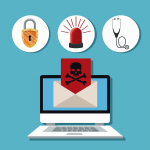Sponsored Links
Sony Music UK Boss Claims Broadband ISPs are Built on Illegal Filesharing
Posted: 19th Dec, 2011 By: MarkJ

 The new CEO of Sony Music UK, Nick Gatfield, has launched a scathing attack on the country's Internet Service Providers (ISP) after claiming that "broadband businesses are being built on the back of illegal filesharing" (e.g. BitTottent P2P). Similar claims were made last year by U2's front man Bono (here).
The new CEO of Sony Music UK, Nick Gatfield, has launched a scathing attack on the country's Internet Service Providers (ISP) after claiming that "broadband businesses are being built on the back of illegal filesharing" (e.g. BitTottent P2P). Similar claims were made last year by U2's front man Bono (here).The comments, which were made as part of a Sunday interview with The Guardian, appear to demonstrated a serious misunderstanding of both how ISPs operate and the market itself. In reality the economics of ISP provision mean that broadband providers, especially the largest ones, actually lose the most money to a core 10% (the proportion varies between ISPs) or so of users that consume the bulk (sometimes up to 90%) of a providers "shared" bandwidth.
This can make running an ISP economically very difficult and many still struggle to return an adequate profit. The result is that ISPs are often forced to introduce tougher Fair Usage Policies (FUP) and stricter Traffic Management measures in order to keep their network load under control.
Nick Gatfield, CEO of Sony Music UK, said:
"As high-speed broadband becomes ubiquitous the problem is going to get bigger and bigger. We need site-blocking, and its an incredibly spurious argument for the ISPs to say that they can't do it because they can do it and they do do it."
"As high-speed broadband becomes ubiquitous the problem is going to get bigger and bigger. We need site-blocking, and its an incredibly spurious argument for the ISPs to say that they can't do it because they can do it and they do do it."
Site blocking (internet censorship), as stated many times before, is merely a placebo measure that's incredibly easy to circumvent (e.g. VPN, Proxy Servers, DNS changes etc.) and often quite costly to introduce. That's not to say that it shouldn't be done and a Voluntary Site Blocking Code is already in the works, but its fallibility makes for a poor fix. Ofcom explained in August 2011 how related provisions "would not be effective" (here).
Indeed the only fool proof way to prevent access to a website is to either physically remove the website itself at source (difficult due to legal barriers between countries) or disable access to all web (http) traffic (i.e. don't use the internet).
Gatfield also warned that the new the Digital Economy Act (DEA) piracy code, which sets out how and when ISPs should send warning letters to their subscribers (i.e. informing them of allegations that their accounts have been used for "illegal" file sharing), will not begin until 2013. "It's too slow. It's onerous, and the lion's share of the cost … is picked up by the recorded music industry," added Gatfield.
The DEA is also currently the subject of an on-going Judicial Review challenge (here), which claims that the act goes against European law. The DEA is also too reliant upon fallible IP address based "evidence" and at best would only identify the connection owner. That could cause significant problems for any shared network, such as in schools, libraries, homes, hotels, businesses etc.
The irony of all this is that ISPs would actually like to get rid of prolific piracy from their networks. This would improve the service performance for their other (majority) customers and bring prices down. The problem is that most of the potential ways of doing this either put them in conflict with existing laws (e.g. privacy), aren't effective or would be economically unviable to introduce.
Meanwhile the only certainty in all this is that those who wish to continue pirating will almost certainly continue to do so, albeit in an increasingly undetectable way.
Search ISP News
Search ISP Listings
Search ISP Reviews
Latest UK ISP News








Cheap BIG ISPs for 100Mbps+
150,000+ Customers | View More ISPs
Cheapest ISPs for 100Mbps+
Modest Availability | View More ISPs
Latest UK ISP News
Helpful ISP Guides and Tips
Sponsored Links
The Top 15 Category Tags
- FTTP (6802)
- BT (3881)
- Politics (3075)
- Business (2767)
- Openreach (2663)
- Building Digital UK (2512)
- Mobile Broadband (2475)
- FTTC (2142)
- Statistics (2128)
- 4G (2092)
- Virgin Media (2025)
- Ofcom Regulation (1779)
- 5G (1732)
- Fibre Optic (1604)
- Wireless Internet (1595)
Sponsored
Copyright © 1999 to Present - ISPreview.co.uk - All Rights Reserved - Terms , Privacy and Cookie Policy , Links , Website Rules






























